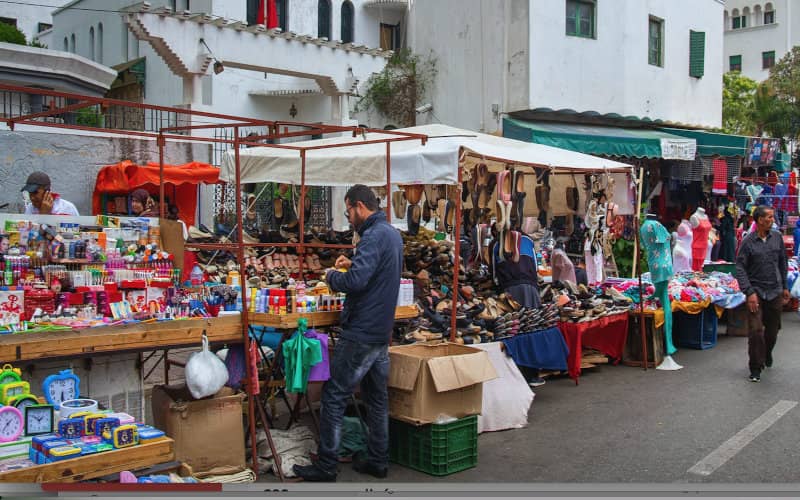Morocco’s Informal Economy Surges, Hampering National Growth, Study Finds

The worrying evolution of the informal sector in the Moroccan market is a concern for the High Commission for Planning (HCP), which presented on March 2 a study on the causes and consequences of this scourge plaguing the Moroccan economy. This survey by the institution reveals that the phenomenon is severely slowing down the country’s development.
In a study entitled "The informal sector in Morocco: main characteristics and trends", the HCP indicates that the total volume of jobs created amounted to 28.7%, and its contribution to GDP reached 11%. This study was based on data from the last three surveys conducted by the HCP (1999, 2007 and 2013). One of the causes that favor this phenomenon is the complexity of the regulatory institutional framework, the same study continues.
According to the HCP, the creation of informal production units (UPI) has invested the service sectors, particularly transport, communication and catering. The main vector of the informal economy remains commerce with a share of 50.6% of the workforce employed in 2013, the authors recall. In this study, the HCP also noted that VAT remains the main tax component that influences the informal sector. It accused "the heads of UPI who source upstream from suppliers who themselves under-declare or work in the informal sector. "This allows them to buy without a regulated invoice and thus escape VAT invoicing," deplores the same study.
Adjustments to the minimum wage also favor the weight of the informal sector. The same study argues that an increase in the SMIG means for companies (VSEs and SMEs) that are struggling to bear the wage burden heavily weighing on their net income, a reduction in staff or non-declarations.
Related Articles
-

Spanish Housing Crisis Exposed: TikTok Video Reveals Stark Morocco-Spain Property Price Gap
26 July 2025
-

Zenata Mall Reborn: Casablanca’s Revolutionary Retail Hub Blends Sustainability and Innovation
26 July 2025
-

Cenntro Electrifies North Africa: US Firm Partners with Moroccan Company to Assemble EVs Locally
26 July 2025
-

Real Estate Scam Exposed: Developers Exploit Housing Aid with Fraudulent Permit Schemes
25 July 2025
-

French Vacationer Slapped with €37,000 Phone Bill: Orange’s Data Nightmare in Morocco
25 July 2025